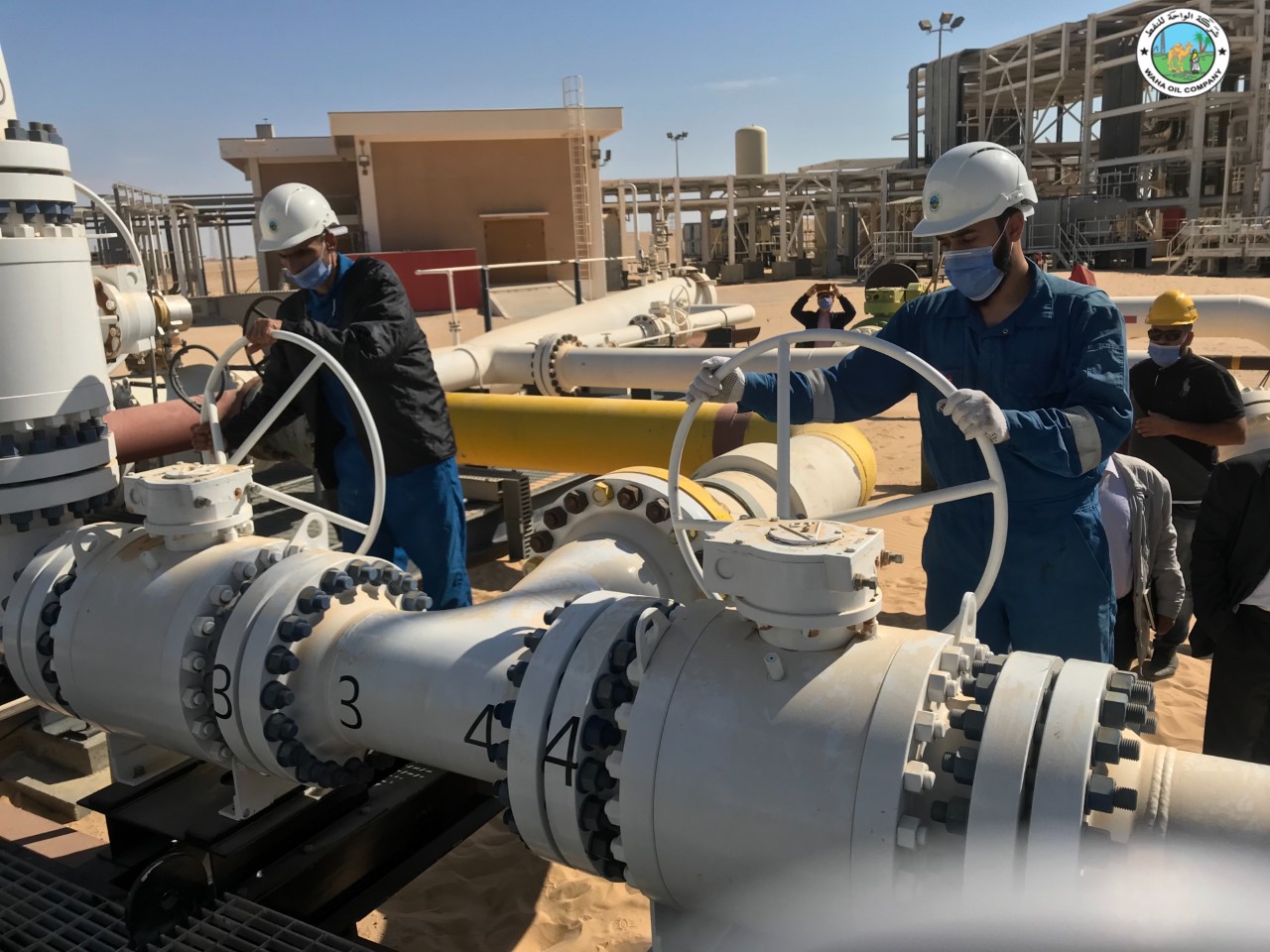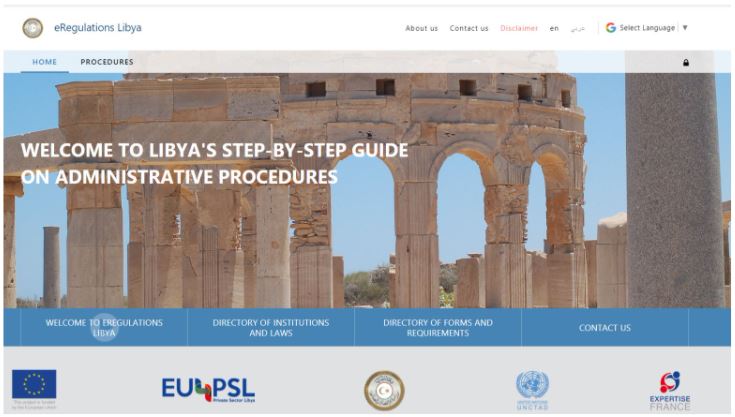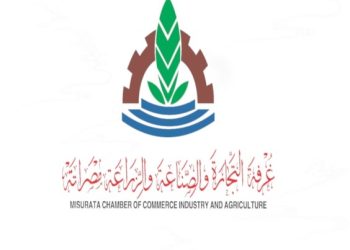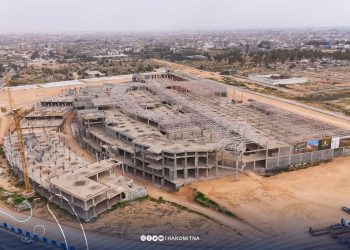By Hala Bugaighis and Mazigh Buzakhar
In the aftermath of the Arab Spring, Libya witnessed a period of instability and political polarization. The rise of uncontrolled armed militias challenging the central government forced several international oil companies to leave the country in 2011, while production volumes fell to a 30-year low in 2013 reaching 1 million oil barrels a day. In the following years, a group of radical jihadists took control over significant parts of the country mainly in the coastal city of Sirte, further deepening instability and preventing new investments.
Libya has the largest natural gas resources in Africa and the tenth largest globally, with proven reserves of 53 trillion cubic feet (Tcf). Most of the natural gas is consumed for power generation, with the rest used as feedstock for fertilizer and oil refining industries. In 2018, natural gas supplied around 80% of the country’s power generation and was planned to be used to fill the gap between falling oil production and rising demand in the future.
Since 2004, natural gas has also been exported to neighbouring countries through the Greenstream Pipeline project owned by ENI and NOC. Still, Libya’s oil production is declining despite efforts by the National Oil Corporation (NOC) to maintain production levels and prevent further decline. Production levels continued to fall below 1.2 million barrels per day between 2014 and 2022 with the expectation of continuous declining further years ahead with current energy uncertainty and the challenges of climate change and energy shortages.
The increasing instability led to the withdrawal of many international oil companies from Libya, reducing production volumes and increasing the costs of exploration in the country. In addition, it became a norm to interrupt oil production to get the attention of the central government in Tripoli. Recently, as a result of the several protests in the south against the dire livelihood situation in the oil-rich region, production from the oil fields was suspended several times, and deprived the country of 330,000 BPD in addition to the significant damage to the oil facilities.
These events affected the country’s fiscal situation, since oil and gas account for the largest share of the country’s revenue. Government revenue was at its lowest in 2016, receiving only $8.85 billion from hydrocarbon revenue compared with previous years, and nearly drove the country to the edge of bankruptcy, with its foreign currency reserves almost depleted. But it had a deep effect on the oil infrastructure in the country, which created more challenges.
On another front, the NOC struggled to develop the sector and maintain the working conditions despite the issues with insufficient budgets allocated to operational and capital expenses and their inability to meet the demands of the field workers and their obligations to other companies.
In July 2022, the Government of National Unity appointed new leadership to the NOC, which managed to resume oil production and exports at all blockaded oilfields and ports but still facing a challenge to achieve their promise to double the current production to reach 3 million barrels per day.
Despite these challenges, Libya is well-positioned for an energy transition: it is one of very few oil producing countries that also have large reserves of natural gas and renewable energy resources. This offers unique opportunities for an accelerated energy transition if stability could be restored, and political tensions managed.
Unpacking the Socio-Economic Context of an Energy Transition
Transitioning away from oil and towards more renewable sources will not come without obstacles. Despite the problems with production, the country still relies on oil and gas exports as a mainstay for economic prosperity. To put this into perspective, the increased oil prices in 2021 resulted in a 123.2% improvement in GDP – a quite staggering figure. This demonstrates that oil exports have a disproportionate impact on the overall health of the Libyan economy, and that the current economy is very fragile, as it would have to be to record those sorts of growth numbers.
From a socio-economic perspective, the oil and gas industry is also one of the largest employers. According to the World Bank, the sector currently employs approximately 25% of all workers in the country, therefore any transition attempts should have the ability to absorb those jobs and to create more in the future. It is important to mention that the lack of skilled Labour that is required to make the shift remains one of the main challenges. As petrochemicals have dominated the energy scene, so has the training and education around these particular industries. Making the shift to a new source of energy requires a new set of skills and ways of thinking that would need to be bedded into society from the ground up. This will require time and resources to be accomplished. However, empowering the people to be a part of the transition, rather than be victims of it, would put the country on a better long-term path.
Regardless of the challenges, this seems like a key inflection point for the country. If Libya is to make itself resilient to the changing tides in the energy industry, now is the time to make the difficult decisions and jump on this opportunity – one that very few countries actually have. If Libya can do this, it could transform the local landscape and be a force for change in improving the quality of lives for ordinary Libyans.
Rethinking the Oil Sector Reform
The NOC should aim to harness the opportunities provided by the national accord on the new leadership and international oil market developments to develop a concrete plan to reform the oil sector. Realistically, it is challenging for the current oil facilities to optimize oil production; therefore, the infrastructure reform must be prioritized in the national budget with a long and short-term plan to produce 3 million barrels per day.
According to the last statement by the NOC chairman, the country needs foreign investors to develop new oil and natural gas supplies. Achieving this requires an investor-friendly environment where fundamental reforms are adopted to develop the legal, governance and fiscal frameworks.
Most importantly, with the emphasis from the UNSC resolution 2656 on transparency of oil expenditures and revenues, the NOC must adopt adequate national mechanisms to enhance transparency in the sector, particularly in the negotiations, license awarding and contracting. This is also essential to gain the trust of the different actors on local, national and international levels to prevent any future interruption to oil and gas production.
Undoubtedly, the sector in Libya is in dire need of multi-dimensional reform.
1-Restructuring the Energy Sector
The key player here is the General Electricity Company of Libya (GECOL), a state-owned enterprise that controls the public grid and had done a decent job in building one of the more robust infrastructures in Africa before the uprising and subsequent instability took its toll. A report from the 2022 the International Council on Large Electric Systems (CIGRE) regional conference laid out some of the thinking about how to efficiently transform and restructure the energy sector.
As an organization, the first step must be to recover some of the damage done and return the grid to a stable state before radical changes can be made. This will include repairing key generation units and transmission systems, critical components for a stable power supply. From there, the organization is striving to implement more sophisticated system modelling that can evaluate the demands on the grid at any point in time and adjust the capacity accordingly. This agility would help manage the risk of outages and provide better information on what is required to power a 2022 Libya.
Another key focus area is on the regulatory best practices and the improvement of internal operations. There have been many discussions about aligning the Libyan Grid Code (the key government policy for power generation) with global norms and positioning it for the energy transition that is to come. As a matter of fact, the used technology will not matter if the legal framework will impede its implementation. Revising this grid code and preparing it for the new reforms will be a proactive way of clearing the path for innovation in the sector.
Lastly, the sector would need to fully embrace renewable energy as the future of the industry. Even with the government pledging to get to 10% renewable energy by 2025, many believe this is still not aggressive enough. The sector needs to invest in dedicated renewable energy funds that can accelerate this innovation and bring more resources and talent into the country. Efforts thus far have been marred by political conflict, but work needs to continue towards integrating more and more renewable power into the system. A new supply feeding into an improved grid infrastructure could cultivate drastic improvements in the overall picture and something that should be central to all economic discussions on a national level.
2- Exploring Natural Gas and Renewable Energy Resources
Africa as a continent has been quite far behind in generating renewable energy, but that has been much more of an economic downfall rather than one of capacity. Libya is well-placed to generate renewable energy because of its climate, position, and resources. The potential is there, and with the right skills and impetus, it could become a significant player across Africa and the world.
Natural gas is the low-hanging fruit. Libya boasts about 1% of the global supply and has proven reserves that outnumber annual consumption by over 300 times. This makes it an incredibly viable alternative for internal consumption and exports. With the right economic incentives and investment, this could be a tremendous boon for the country, especially considering the current European crisis due to Russia closing the Nord Stream 1 pipeline.
While some analysts think it is far-fetched, it is not out of the question to suggest that Libya might be able to play a larger role in the global supply market and tap into the foreign investment that is available as a result. Natural gas will continue to play a large role as we move forward and as a country with so much in reserve; therefore, policymakers should focus on developing designs to promote the development and commercialisation of natural gas in the country. In addition to that, there is a need to understand the reality of the evolving gas market and geopolitics, which could potentially emerge if a strong gas cartel like Gas Exporting Countries Forum (GECF) has the capacity to develop and reshape the geo-energy landscape.
On a longer-term timeline, Libya should also seek to extract power from renewable sources such as solar, hydropower, wind, and others. These are slightly more challenging than natural gas but provide a potentially more sustainable and cost-effective option if economies of can be achieved. Exploration into these opportunities and the exploitation thereof needs to be more urgent.
3- The Post-Oil Era: Going Green
A discussion would not be complete without considering the global sentiments towards oil that always play a vital role in these debates. Oil has been the mainstay of power generation for centuries now and no one can deny its importance – to this day. However, things are changing and as society bends toward a greener and more sustainable future, it seems that the world is working towards a new era where oil does not dominate the electricity landscape.
While much of the focus has been on oil-dependent economies in the Gulf, Libya is in a very similar position. The policymakers must start working towards a new version of the economy that is not based purely on oil exports, but instead on green energy production. It would be naïve to suggest that this is just required because of environmentalism, although that plays a role, but rather as a reaction to global trends that will play out in Africa as it looks to find its place in the economy of the future.
There is a huge amount of opportunity for solar and wind energy in Libya because the country is situated in the desert. As an example, at its solar peak, the country receives around 7.5KWh/m2 /day from the sun – which would be more than enough to power the local economy and have plenty to spare. More attention and effort is needed to transform that potential into real green energy that can be the backbone of the country’s future.
In addition, adding new sources of energy to the grid further diversifies production risk and improves the robustness of the overall system as it must deal with political and economic instability. All of this is good news for an economy that is in desperate need of innovation and a fresh start.
Conclusion
Undoubtedly, Libya has significant potential to play a vital role as an oil and gas producer, mainly in times of global crisis where Libyan gas could have a major role as an alternative to the Russian gas supplied to Europe, especially with existing infrastructure. Alas, the country’s continuous political chaos has negatively impacted Libya’s image as a reliable partner, which could be seen in the European interest of finding a partnership in neighbouring countries like Algeria and Egypt.
In many respects, Libya has never had a golden chance to transform its economic future than it has right now. There is a tremendous opportunity on its doorstep to take the reins and build toward a sustainable energy sector that leverages renewable resources rather than relying on oil. Essentially, the country needs to accelerate the economic and legislative reforms to attract foreign investment; this includes enhancing the business ecosystem, easing administrative red tape, and improving the banking system. It will certainly not be easy to accomplish, especially with the continued political and economic struggles. Still, it is a path towards meaningful transition and reform.
In conclusion, Libyan policymakers must turn their wishful thinking into more concrete action plans. If the NOC’s new leadership aims to develop the energy sector, it has to recognise that reform starts with creating a clear vision for the sector in collaboration with other stakeholders to develop a national strategy based on realistic data and captured value.
Hala, T, Bugaighis is a senior Libyan consultant, researcher, and co-founder of Jusoor Center for Studies and Development. This pioneer Libyan think tank works on economic development and advocates for women’s economic inclusion.
She has had several reports and articles on women and Libya’s economic development published. She is also a member of the Libyan Economic Track coordinated by UNSMIL.
Mazigh Buzakhar is an independent researcher and co-founder of TIRA for Research and Studies based in Tripoli-Libya with 17 years of experience in the telecom and oilfield industry. He holds BSc. degree in Electrical & Electronic Engineering from Sirte University, Libya and MIT Executive Certification in Strategy & Innovation. He has had several works published in journals and on websites including articles and research papers on Tamazight culture & language, the digital economy and energy.
Op-Ed: Enough Tokenism: Its Time to Demand Meaningful Inclusion! (libyaherald.com)
Op-ed: Libya cannot afford to forget its women (libyaherald.com)










